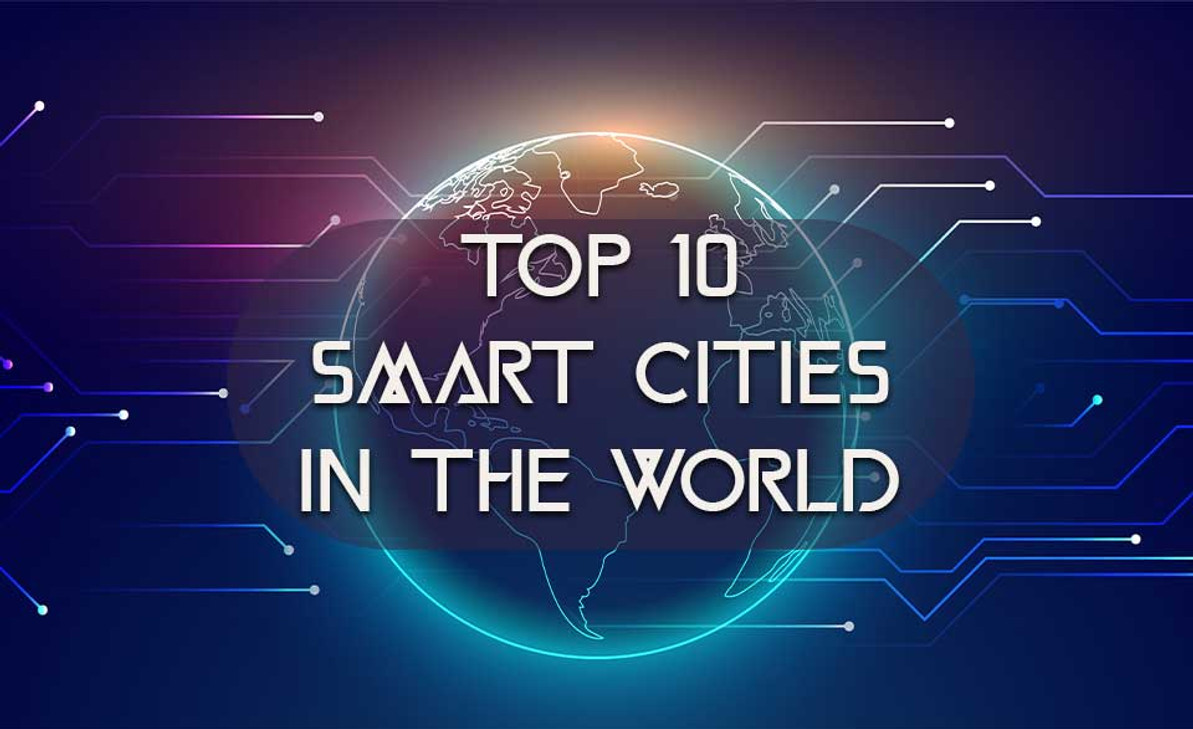Top 10 Smart Cities in the World
Cities worldwide are at varying stages of developing and implementing intelligent technologies. A few cities are ahead of the curve and are paving the way for brilliant cities. The leading sustainable smart cities were determined based on the following criteria:
- Technological support
- Environmental, social, and economic sustainability.
- Economic and social growth
- Air pollution
- The energy transition towards renewables
- Standard of living
- Waste per capita
- Conservation of water
- Social infrastructure and market interconnectedness
- Environmental, social, and governance (ESG) effectiveness
- Infrastructure for smart cities
Top smart cities
The following are the world's leading smart cities:
Singapore
Singapore is regarded as one of the world's smartest cities. The government is focusing on digital technologies and initiatives to increase productivity in an advanced economy with an aging population. By 2022, the government intends to have solar panels on the rooftops of at least 6,000 buildings and energy-efficient lighting on all public roads.
New York City
In 2020, New York City launched a smart city pilot program. Hundreds of smart sensors and emerging technologies were installed in various districts. The collected data allowed the city to manage services more efficiently, such as waste management and collection. Online charging stations are replacing phone booths to promote and expand the population's connectivity.
Chicago
Chicago is the third-largest city in the United States. With a population of 2.6 million, it uses various smart city technologies. Its smart strategies help to continue its growth and development. Its "Array of Things" urban sensing network solves the city's pollution, traffic, and climate change problems.
Boston
Boston was one of the first cities to experiment with smart programs. Its long-term goal is to create "participatory urbanism" based on mobile apps. These apps help the population receive quick and accessible information. For example, information about things like parking availability. It will allow them to communicate more easily with one another, report city-wide issues, and track public transportation performance.
Barcelona
The city hosted the inaugural Smart City Expo and World Congress in 2011. Barcelona has implemented many smart city innovations, including LED light poles for monitoring traffic and congestion, pedestrian activity, air quality, and noise pollution. The streets are also lined with smart trash cans. Those trash cans vacuum trash into underground storage tanks. This will cut down on the number of garbage trucks and get rid of foul odors.
Copenhagen
The Copenhagen Solutions Lab's monitoring system for air quality, energy consumption, traffic, and waste management was awarded in 2017. The city collaborates with the Massachusetts Institute of Technology (MIT) to develop its smart bike system. This system links traffic lights, charging stations for electric cars, and smart meters to a single platform. So that cars and delivery services can run more smoothly.
Hong Kong
Hong Kong has not only equipped its streets with smart lampposts embedded with sensors, but it has also developed them for future 5G compatibility. You can also find dashboards for smart cities that work on mobile devices. They can show images, maps, and real-time weather, temperature, and parking information.
London
In recent years, London has established many smart city initiatives. The Civic Innovation Challenge is an incubator platform that aids startups in developing solutions to the growing number of urban problems faced by cities. Another example is Connect London, which aims to provide 5G connectivity and fiber-optic coverage throughout the city. The famous lampposts in London will also have sensors and places for electric cars to charge.
Dubai
Dubai has recently completed a seven-year plan to transform all government services digitally. Services such as communications, urban planning, and transportation. Utilizing AI in the transportation industry has reduced fatigue-related traffic accidents. The police have implemented automation, and the city already has three autonomous police stations.
Amsterdam
The smart city initiative in Amsterdam began in 2009 and has promoted over 170 projects. Developers have access to transportation and traffic data. They can use data to create mapping applications that can be integrated into the city's transportation system. In Amsterdam, automation has also been implemented in the form of delivery boats known as "robots."
In Amsterdam, delivery vehicles take to the water, and there are also floating villages. They help with overcrowding and offer a more environmentally friendly alternative to building more on land.
Recent Posts
-
Booster Pump Troubleshooting and Maintenance: How to Fix and Prevent Common Issues
1. Introduction Imagine turning on your faucet only to be greeted with a weak trickle of water when …22nd Apr 2025 -
Energy-Efficient Booster Pumps: Selection and Tips for Maximizing Performance
1. Introduction Imagine never having to deal with fluctuating water pressure, noisy pumps, or skyroc …19th Apr 2025 -
Booster Pumps for Sustainable Water Systems: Irrigation and Rainwater Harvesting Solutions
1. Introduction Water scarcity is no longer a distant threat—it’s a reality affecting millions …16th Apr 2025




